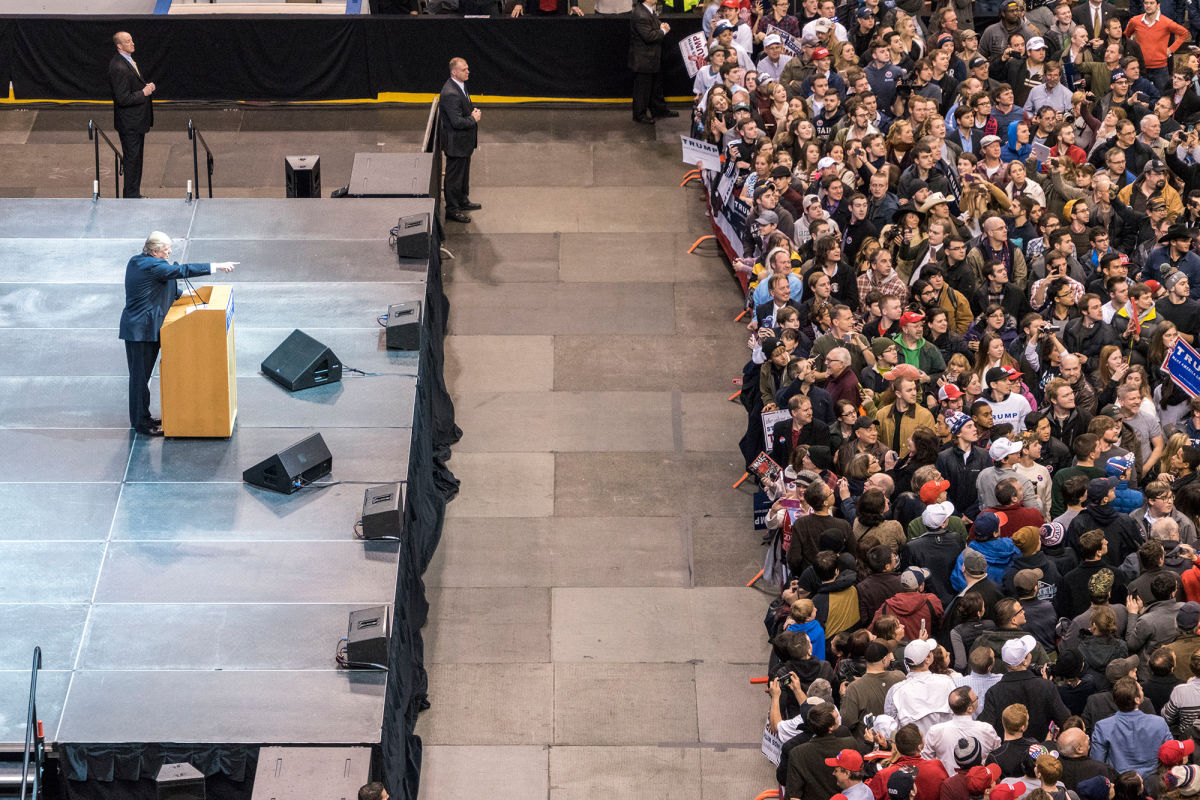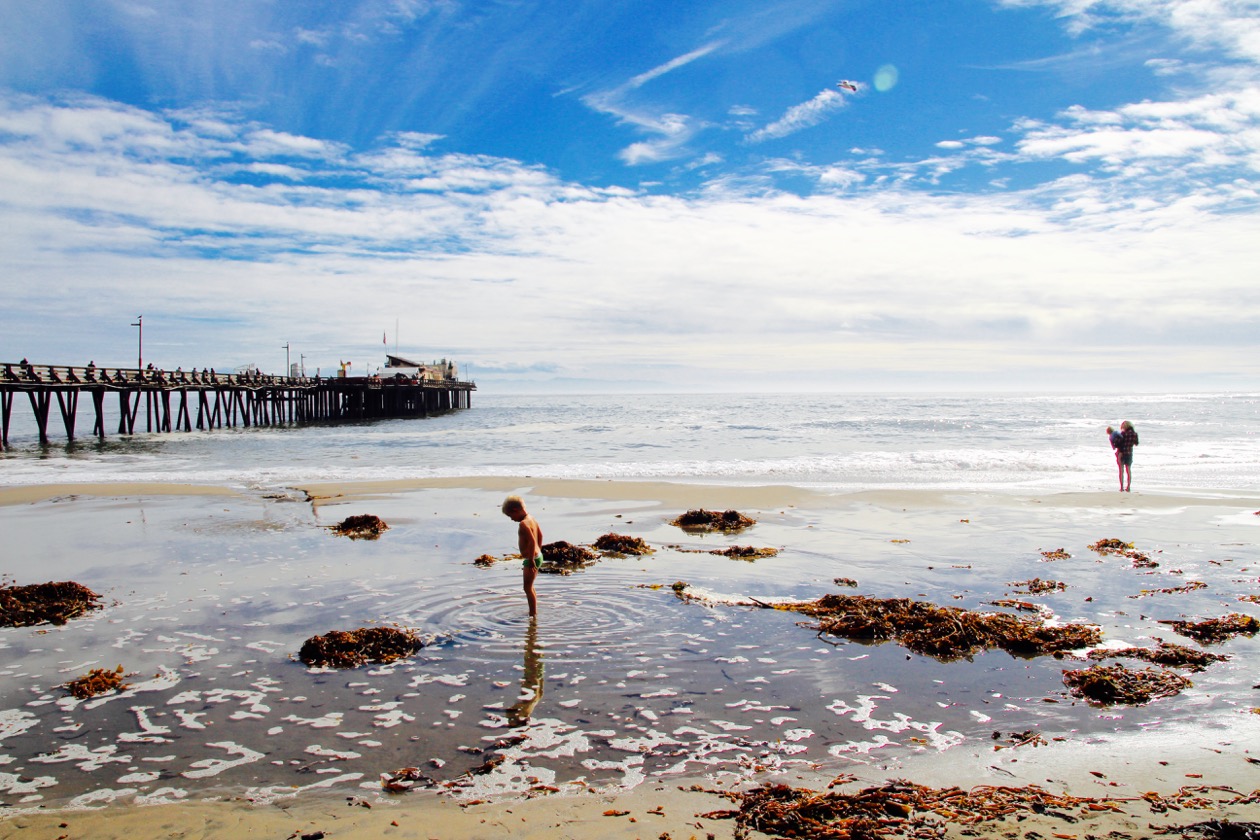
Carmel-by-the-Sea, California | Memorial Day Weekend
My son’s middle name, Henry, comes from his grandfather. He was a veteran of the second World War, and a union organizer and civil rights worker during the McCarthy era (and beyond). I think about my grandpa a lot; he was a thoughtful, passionate, and mostly very kind man. He was the type of person who didn’t just say he believed in things; he fought for them, and made sacrifices for them. I think about him even more lately: I picture him sitting at his dining room table, eating a mango and watching the news. He’d be so disappointed – so saddened – by what’s happening in our country right now.
The point of today, of course, is to remember the thousands and thousands of men and women who have given their lives in an effort to help make our country what it is. It’s a day to think about our country’s past, and honor those who have helped to shape it, but I think that it’s also a day when we should think about its future – because that’s what all those countless servicemen and women were fighting for.
On September 11, 2001, I woke up several hours before my first class because I was startled awake by a dream in which I died in a fiery explosion. In this dream I went to heaven, where I sat on a hilltop and watched things burn way down below. I wanted to remember that dream, and sat down at my computer to start writing it down. And so I was awake when my father called to tell me about the plane that had hit the World Trade Center. I turned on the TV to see what he was talking about, and then ran downstairs and burst into the dining hall, yelling “There’s a hole in the World Trade Center,” because I couldn’t think how else to describe it. I think a couple of people muttered, “Wow” or “That’s terrible,” but mostly they just kept eating breakfast.
I went back upstairs to my room feeling silly. Because it wasn’t clear yet – to me or to anyone, really – whether what we were looking at was just a tragic fluke, or what it turned out to be: the moment that would change everything.
Today we get to hang out on beaches and swim in pools and eat hamburgers and drink beer; I know most of you would rather do that than get all riled up about politics. I get that. I want to go drink some beer and lay in the sun and be happy I have the day off rather than think about why I get to relax at home on this beautiful Monday morning. All I’m asking is that before you do that, take a moment to read the article below. I’m printing the entire thing here, because I think it’s that important. What our veterans fought for was America. What’s in danger right now is America; that’s no overstatement.
When I ran into that dining hall, I wasn’t sure if I should yell; I wasn’t sure whether I was making a big deal out of a tragedy that would affect those whom it touched, of course, but not have especially far-reaching impact. It turned out that the consequences were real, and they were enormous. The potential consequences are real and enormous right now, too.
We need to yell.
* * *
THE DANGEROUS ACCEPTANCE OF DONALD TRUMP
by Adam Gopnik (reprinted from The New Yorker)

Columnists and magazines that a month ago were saying #NeverTrump are now vibrating with the frisson of his audacity.
“Vice is a monster of so frightful mien, / As, to be hated, needs but to be seen,” the poet Alexander Pope wrote, in lines that were once, as they said back in the day, imprinted on the mind of every schoolboy. Pope continued, “Yet seen too oft, familiar with her face, / we first endure, then pity, then embrace.” The three-part process by which the gross becomes the taken for granted has been on matchlessly grim view this past week in the ascent of Donald Trump. First merely endured by those in the Republican Party, with pained grimaces and faint bleats of reluctance, bare toleration passed quickly over into blind, partisan allegiance—he’s going to be the nominee, after all, and so is our boy. Then a weird kind of pity arose, directed not so much at him (he supplies his own self-pity) as at his supporters, on the premise that their existence somehow makes him a champion for the dispossessed, although the evidence indicates that his followers are mostly stirred by familiar racial and cultural resentments, of which Trump has been a single-minded spokesperson.
Now for the embrace. One by one, people who had not merely resisted him before but called him by his proper name—who, until a month ago, were determined to oppose a man they rightly described as a con artist and a pathological liar—are suddenly getting on board. Columnists and magazines that a month ago were saying #NeverTrump are now vibrating with the frisson of his audacity, fawning over him or at least thrilling to his rising poll numbers and telling one another, “We can control him.”
No, you can’t. One can argue about whether to call him a fascist or an authoritarian populist or a grotesque joke made in a nightmare shared between Philip K. Dick and Tom Wolfe, but under any label Trump is a declared enemy of the liberal constitutional order of the United States—the order that has made it, in fact, the great and plural country that it already is. He announces his enmity to America by word and action every day. It is articulated in his insistence on the rightness of torture and the acceptable murder of noncombatants. It is self-evident in the threats he makes daily to destroy his political enemies, made only worse by the frivolity and transience of the tone of those threats. He makes his enmity to American values clear when he suggests that the Presidency holds absolute power, through which he will be able to end opposition—whether by questioning the ownership of newspapers or talking about changing libel laws or threatening to take away F.C.C. licenses. To say “Well, he would not really have the power to accomplish that” is to misunderstand the nature of thin-skinned authoritarians in power. They do not arrive in office and discover, as constitutionalists do, that their capabilities are more limited than they imagined. They arrive, and then make their power as large as they can.
And Trump announces his enmity in the choice of his companions. The Murdoch media conglomerate has been ordered to acquiesce; it’s no surprise that it has. But Trump’s other fellow-travellers include Roger Stone, the Republican political operative and dirty-tricks maven, while his venues have included the broadcasts of Alex Jones, a ranting conspiracy theorist who believes in a Globalist plot wherein “an alien force not of this world is attacking humanity”—not to mention Jones’s marketing of the theory that Michelle Obama is a transvestite who murdered Joan Rivers. These are not harmless oddballs Trump is flirting with. This is not the lunatic fringe. These are the lunatics.
Ted Cruz called Trump a pathological liar, the kind who does not know the difference between lies and truth. Whatever the clinical diagnosis, we do appear to be getting, in place of the once famous Big Lie of the nineteen-thirties, a sordid blizzard of lies. The Big Lie was fit for a time of processionals and nighttime rallies, and films that featured them. The blizzard of lies is made for Twitter and the quick hit of an impulse culture. Trump’s lies arrive with such rapidity that before one can be refuted a new one comes to take its place. It wasn’t his voice on that tape of pitiful self-promotion. O.K., it was—but he never mocked the handicapped reporter, he was merely imitating an obsequious one. The media eventually moves on, shrugging helplessly, to the next lie. Then the next lie, and the next. If the lies are bizarre enough and frequent enough, they provoke little more than a nervous giggle and a cry of “Well, guess he’s changed the rules!”
He’s not Hitler, as his wife recently said? Well, of course he isn’t. But then Hitler wasn’t Hitler—until he was. At each step of the way, the shock was tempered by acceptance. It depended on conservatives pretending he wasn’t so bad, compared with the Communists, while at the same time the militant left decided that their real enemies were the moderate leftists, who were really indistinguishable from the Nazis. The radical progressives decided that there was no difference between the democratic left and the totalitarian right and that an explosion of institutions was exactly the most thrilling thing imaginable.
The American Republic stands threatened by the first overtly anti-democratic leader of a large party in its modern history—an authoritarian with no grasp of history, no impulse control, and no apparent barriers on his will to power. The right thing to do, for everyone who believes in liberal democracy, is to gather around and work to defeat him on Election Day. Instead, we seem to be either engaged in parochial feuding or caught by habits of tribal hatred so ingrained that they have become impossible to escape even at moments of maximum danger. Bernie Sanders wouldn’t mind bringing down the Democratic Party to prevent it from surrendering to corporate forces—and yet he may be increasing the possibility of rule-by-billionaire.
There is a difference between major and minor issues, and between primary and secondary values. Many of us think that it would be terrible if the radical-revisionist reading of the Second Amendment created by the Heller decision eight years ago was kept in place in a constitutional court; many on the other side think it would be terrible if that other radical decision, Roe v. Wade, continued to be found to be compatible with the constitutional order. What we all should agree on is that the one thing worse would be to have no constitutional order left to argue about.
If Trump came to power, there is a decent chance that the American experiment would be over. This is not a hyperbolic prediction; it is not a hysterical prediction; it is simply a candid reading of what history tells us happens in countries with leaders like Trump. Countries don’t really recover from being taken over by unstable authoritarian nationalists of any political bent, left or right—not by Peróns or Castros or Putins or Francos or Lenins or fill in the blanks. The nation may survive, but the wound to hope and order will never fully heal. Ask Argentinians or Chileans or Venezuelans or Russians or Italians—or Germans. The national psyche never gets over learning that its institutions are that fragile and their ability to resist a dictator that weak. If he can rout the Republican Party in a week by having effectively secured the nomination, ask yourself what Trump could do with the American government if he had a mandate. Before those famous schoolroom lines, Pope made another observation, which was that even as you recognize that the world is a mixed-up place, you still can’t fool yourself about the difference between the acceptable and the unacceptable: “Fools! who from hence into the notion fall / That vice or virtue there is none at all,” he wrote. “Is there no black or white? / Ask your own heart, and nothing is so plain; / ’Tis to mistake them, costs the time and pain.” The pain of not seeing that black is black soon enough will be ours, and the time to recognize this is now.
This piece was originally printed in The New Yorker on May 20, 2016.






